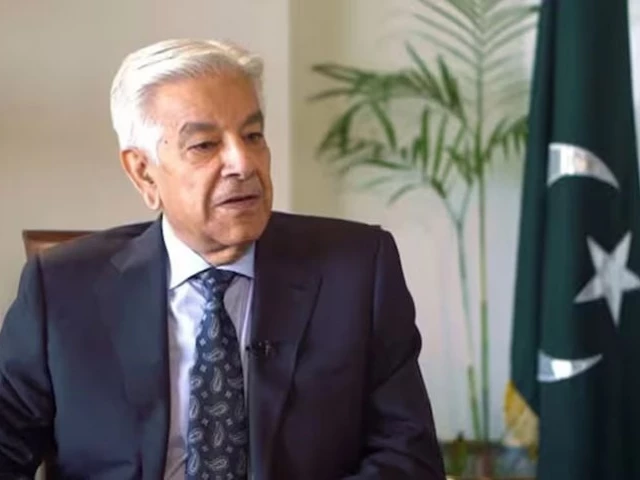Islamabad, Kabul reaffirm joint efforts to combat border terrorism
Khawaja Asif says both nations committed to addressing militancy for lasting regional peace

Pakistan and Afghanistan have reaffirmed their commitment to work together in curbing terrorism along their shared border, signaling a renewed effort to stabilise a region long plagued by militancy and distrust.
Defence Minister Khawaja Asif, in an interview with Al-Jazeera Arabic, said that both countries have recognised terrorism as the principal obstacle to peace and progress. He explained that recent discussions between the two sides have focused on creating a sustainable framework for security cooperation, aimed at eliminating the groups responsible for cross-border violence.
Read: Saudi Arabia backs Pakistan-Afghanistan truce
During the interview, he said, the Afghan Defence Minister also accepted that terrorism remains the primary source of tension between Islamabad and Kabul, and that both governments must act decisively to neutralise the threat. The understanding, he said, reflects a shared acknowledgment that regional peace cannot be achieved without a coordinated approach to counter extremism.
Preparations are underway for a key meeting in Istanbul next week, where officials are expected to finalise the details of the new agreement. The agenda will reportedly include measures for intelligence sharing, joint border surveillance, and a structured mechanism to ensure compliance with ceasefire commitments.
Read More: Pakistan, Afghanistan agree to immediate ceasefire in Doha talks
Asif expressed optimism that once the issue of terrorism is effectively addressed, broader cooperation in trade, transit, and infrastructure development will follow. He noted that stabilising the frontier would open pathways for Afghanistan to resume commercial activities through Pakistani ports, benefiting both economies and fostering mutual interdependence.
The renewed engagement also comes amid persistent security challenges in the border areas, where militant activity has often derailed diplomatic progress. This latest initiative marks a significant attempt to move beyond sporadic talks toward a long-term strategic partnership grounded in security and economic cooperation.
While the success of the effort will depend on how well both countries can implement and monitor their commitments, the upcoming Istanbul meeting is viewed as a potential turning point. Analysts believe that if the understanding translates into concrete action, it could not only improve bilateral relations but also strengthen the broader regional stability that has remained elusive for decades.




















COMMENTS
Comments are moderated and generally will be posted if they are on-topic and not abusive.
For more information, please see our Comments FAQ